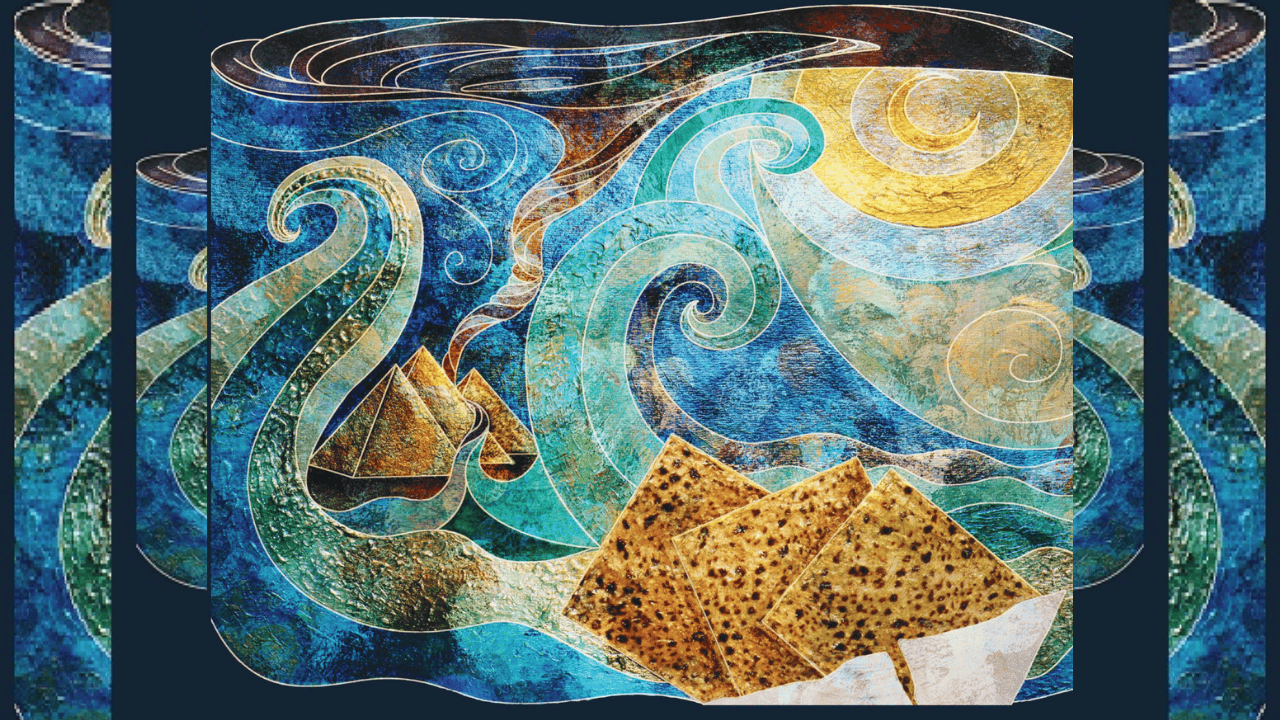On the seventh day of Pesach we celebrate the crossing of the Reed Sea. On this day the Jewish people left the borders of Egypt and watched as the pursuing army was drowned in the sea. According to one Midrash the sea did not split until Nachshon Ben Aminadov entered the sea determined to cross it (Tzror HaMor). Only when the water reached their noses did it split (Shemot Rabbah 21:9). The obvious lesson to be gleaned from this Midrash is that it took human initiative to draw down God’s intervention – in this case the miraculous splitting of the Sea.
After the people reached the other side and witnessed their enemies being drowned they burst out in song. The Midrash tells us that even the simplest hand maiden was granted a vision of the Divine greater than even the vision of Ezekial of the Divine chariot (Michilta on Exodus 15:2).
On the second night of Pesach we start counting the omer, the seven week, forty-nine day period culminating in Shavuot and the giving of the Torah at Mt. Sinai. This period is very conducive to rectifying different aspects of our personality. According to Kabbalah, the seven weeks of the omer correspond to the seven lower sefirot, the channels of Divine flow into the world. The sefirot manifest themselves at all levels of reality, including that of the human psyche and personality. Each sefira, according to the principle of interinclusion, actually contains within itself an aspect of all the others, therefore we are taught that each night of the omer period represents a combination of two sefirot – the primary sefira of the week as well as an interincluded aspect. The combination of sefirot on the seventh night of Pesach is the aspect of yesod, foundation, within the aspect of chesed, mercy or loving kindness.
When translated into human experience this means that there is a connection between yesod shebe chesed, the “foundation of lovingkindness” and the events that took place at the crossing of the Sea.
Every person at some point has a vision of what they would like to accomplish in life, who they would like to be, what their true beliefs are and what their innate potential could achieve if activated. To translate that vision into reality is one of the main struggles and challenges of life. Many have the vision, but completely lack the inner fortitude to bring it to fruition. Others lack the confidence or faith in themselves to even begin. Others may attempt to realize their visions, but when the water gets up to the knees, they panic or lose determination. Others still, drown out the vision in alcohol or drugs or work or petty pursuits in order not to have to face the challenge of becoming who they know they could be.
But for those who have the “guts” to try to be all they could be, they must cross the Sea – there is no other way to get to the other side. For those fortunate ones who don’t give up, their vision becomes the foundation of their lives, the inspiration to try to fulfill their unique vision and mission in life. Upon this foundation their entire life rests.
The inner motivational dimension of yesod, foundation, is called emet, truth; the truth by which we live and make decisions. A building is only as strong as the foundation upon which it rests, on the truths that form our belief system. What an act of loving kindness it is from God when he grants us a glimpse of our mission in life and responds to our commitment to fulfill it by opening the sea and helping us through. Crossing the sea and the seventh day of Pesach are therefore the essence of the “foundation of loving kindness” through which we build our dreams and our reality.







